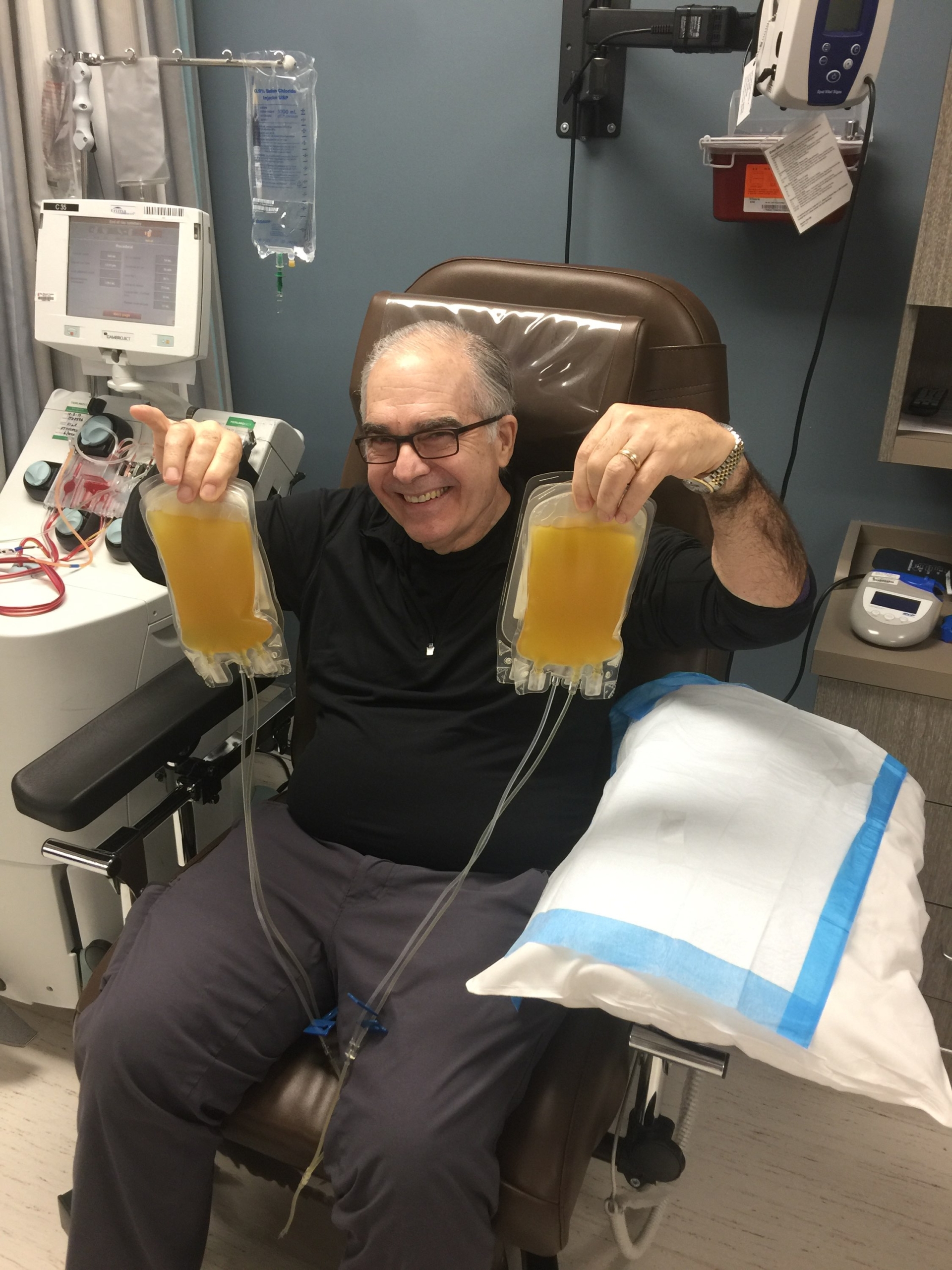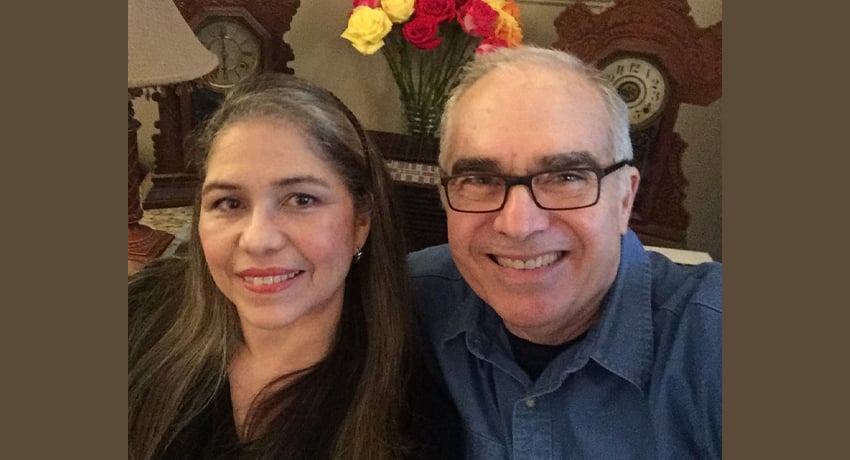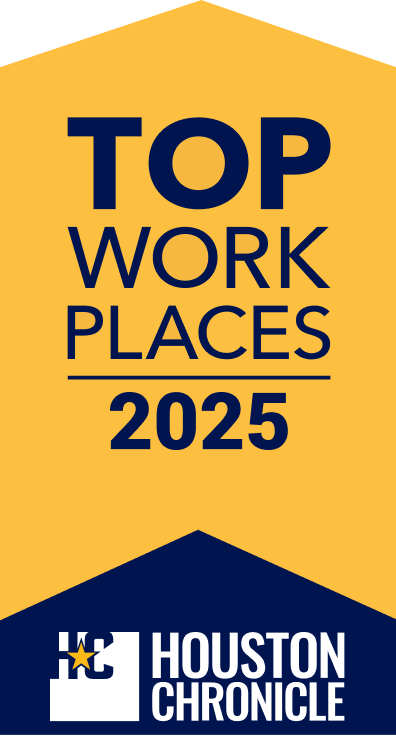When Jose Abdelnoor, 71, and his wife Evelyn Diaz, 67, were diagnosed with COVID-19, they were filled with fear, but personalized care from their UT Physicians cardiologist Heinrich Taegtmeyer, MD, gave them hope so they could get through it.
“We called him to share that we had both tested positive for COVID-19, and right away he said ‘Don’t worry, we are going to get through this together.’ That shifted my mindset to believe I could overcome the virus. And we have talked to him every day since — even on Saturdays and Sundays he calls to check on us,” Diaz said. “We are very fortunate to have a cardiologist who cares so much.”
The couple tested positive for COVID-19 in mid-March after traveling out of state for a funeral. Both Abdelnoor and Diaz have underlying conditions and were aware that to some, the odds of survival might seem stacked against them.
“I’ve read about so many folks younger and healthier than me who died from the virus,” Abdelnoor said. “Both my wife and I felt like at one point or another that we were so sick we might die. But I knew it wasn’t my time to go. My friends tell me I’m a warrior.”
In addition to prayers from friends and family, they say the care and constant check-ins they received from Taegtmeyer helped them recover.
“He would call to check on us and notice things while we were talking, like our cough getting better or voice improving,” Diaz said.
He recommended a cough syrup to loosen up the phlegm and an ointment with vapors to soothe the chest. He also recommended breathing exercises and drinking lots of water.
“I was drinking more than 100 ounces of water a day. I was also applying heat to my back, neck, and shoulders to ease the aches. Slowly but surely, we started feeling better and were able to recover completely at home,” Diaz said.
“The pandemic has caught all of us by surprise. As the oldest board-certified cardiologist at McGovern Medical School, and as a physician-scientist who also treats patients, I am grateful that I can be of help wherever I am needed,” said Taegtmeyer, who’s also a a professor of cardiovascular medicine at McGovern Medical School at UTHealth.
Diaz had read that donating plasma could help other patients recover. When she asked Taegtmeyer about the therapy, he recommended they enroll in the investigational plasma program by physicians at UTHealth for use at Memorial Hermann.

Researchers say transfusing plasma from someone who has been recovered from the virus to someone who is critically ill could give the patient the boost they need to overcome the illness.
Both Diaz and Abdelnoor say they would go through the scary experience of having COVID-19 again if it means they could save a life through donating their antibody-rich plasma.
“What greater gift is there to give someone than human life?” Diaz asked.
Abdelnoor donated plasma and Diaz is waiting the required 14 days after being officially declared recovered from the virus before donating her plasma.
“It’s a way of saving one or more people’s lives without having to sacrifice anything,” Diaz said. “I am so excited about donating – it makes going through the illness worthwhile.”
“I had fun when I donated my plasma – I even took pictures while I was there. It took less than an hour and was not painful at all. It was a very pleasant and fulfilling experience for me,” Abdelnoor said.
Anyone interested can fill out this form and/or email [email protected], and if qualifications are met, they’ll be asked to come to the Texas Medical Center to provide a blood sample for testing.
Luis Ostrosky, MD, an infectious disease specialist, and Bela Patel, MD, a pulmonary and sleep medicine specialist, who also see patients at UT Physicians, are part of the plasma program.
Heinrich Taegtmeyer, MD, specializes in cardiovascular medicine and sees patients at UT Physicians Cardiology – Texas Medical Center. Call (832) 325-7211 to make an appointment.



